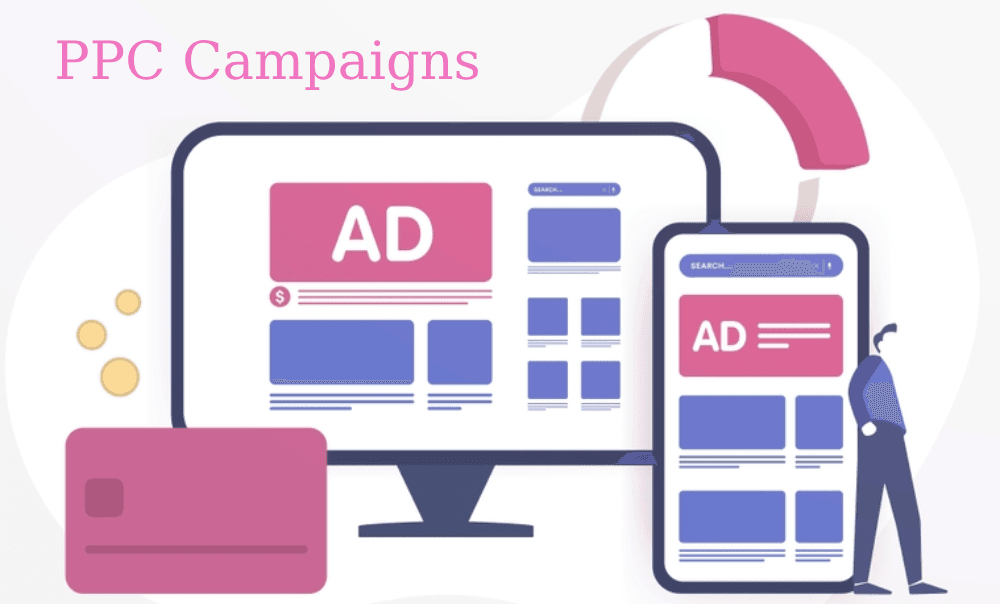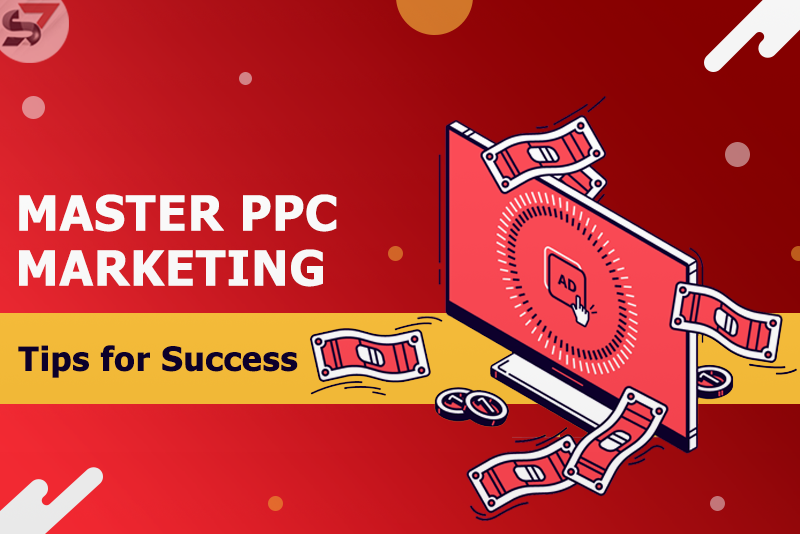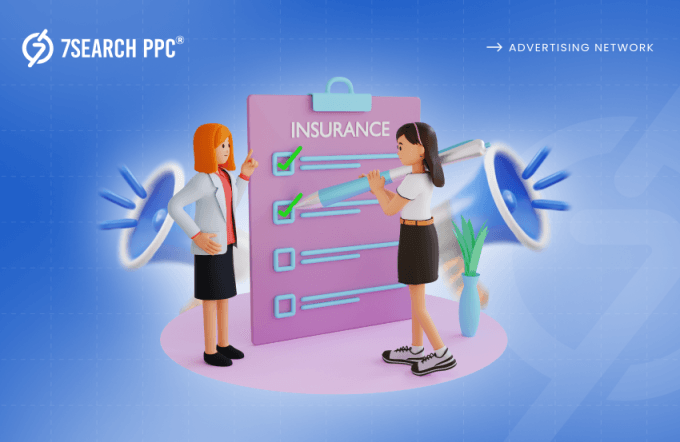Welcome to the world of PPC marketing, where every click counts, and the potential for business success is limitless. In this blog, we will delve into the art and science of PPC marketing. It will equip you with the best practices and insider tips to conquer this dynamic PPC in digital marketing.
PPC, or Pay-Per-Click, is a digital marketing strategy that allows businesses to reach their target audience through online ads. Unlike traditional advertising methods, PPC offers a highly targeted approach. It ensures your message reaches the right people at the right time.
Are you ready to take your marketing game to the next level? If so, you have come to the right spot. In this blog post, we will direct you through the essential steps of mastering PPC marketing. It will empower you to create effective PPC ads, maximize your return on investment, and achieve your business goals.
So, let’s dive in and discover the best practices and tips to set you on the path to PPC success.
Understanding the Basics of PPC Marketing:
PPC marketing, or Pay-Per-Click marketing, is an online advertising method. It allows firms to attain their target audience online. It works like this: you create an ad and place it on a platform (like Google or Facebook). Then, you pay a small fee whenever someone clicks on your ad.
The beauty of PPC advertising lies in its ability to target specific demographics and interests. By carefully selecting keywords and defining your target audience, you can guarantee that your ads are shown to people most likely interested in your product or service.
To start with PPC marketing, you must set a budget, conduct keyword research, and create compelling ads. It’s essential to regularly monitor and optimize your campaigns to maximize results and minimize costs.
With a solid understanding of the basics, you will be well-equipped to embark on your PPC marketing journey. It can also drive meaningful results for your business.
Setting Clear Goals for Your PPC Campaigns:
Clear goals provide direction, focus, and measurable targets, helping you optimize your PPC efforts and achieve the desired outcomes. Let’s explore the significance of setting clear goals:

Define Your Objectives: Setting clear goals helps you define your campaign objectives. Are you striving to boost website traffic, generate leads, boost sales, or enhance brand awareness? It ensures that all your efforts are aligned toward a specific purpose.
Measure Success: Clear goals enable you to measure the success of your PPC campaigns. You can set specific, measurable metrics, such as click-through rates (CTR), conversion rates, or return on ad spend (ROAS). You can track and assess the performance of your campaigns.
Focus Your Strategy: Setting clear goals helps you focus your PPC marketing strategy. When you have a clear objective, you can develop targeted keywords, compelling ad copy, and relevant landing pages that align with your goals.
Allocate Budget Wisely: Clear goals allow you to allocate your PPC budget wisely. When you have defined goals, you can prioritize your spending based on the objectives that matter most to your business.
Optimize Performance: Setting clear goals provides a benchmark for performance optimization. By monitoring your campaign’s performance against your goals, you can determine areas for modification and optimize your PPC efforts accordingly.
Crafting Compelling PPC Ad Copy for Maximum Impact:
Be Clear and Concise: Use short, simple sentences in your ad copy. Explain exactly what people will get in one or two sentences. Long-winded or vague ad copy does not perform well.
Include Keywords: Use relevant keywords your target audience is likely searching for. But make sure they fit naturally into your ad copy and don’t sound forced.
Highlight Benefits, Not Features: Focus on the emotional and practical benefits people will gain, not just listing features. Focus on how your product or service will make their lives easier, better, or more productive.
Call to Action: Include a clear call to action like “click here” or “learn more.” Tell people exactly what you want them to do after reading your ad.
Use Compelling Headlines: Your headline should quickly capture attention and communicate the main benefits or value. Make it short, catchy, and persuasive.
Test and Refine: Experiment with ad variations, headlines, benefits, and calls to action. Track which ads perform best regarding clicks, conversions, and cost per conversion. Refine your winning ad copy and retire the underperforming ads.
Be Honest and Consistent: Your ad copy should be consistent with your brand voice, messaging, and people’s experience with your product or service. Don’t exaggerate claims or make false promises.
A/B Testing Strategies in PPC for Continuous Improvement:
A/B testing is a crucial strategy in PPC marketing services where you simultaneously test two versions of an ad, landing page, or aspect of your campaign to determine which performs better. Some effective A/B testing strategies for PPC include:
1. Ad Copy Testing – Test different ad headlines, descriptions, and calls to action to see which generates the highest click-through rate and lowest cost per click.
2. Keyword Testing – Test new, long-tail keywords against your current high-performing keywords to find better, more targeted options.
3. Landing Page Testing – Compare standard landing pages against more tailored, targeted landing pages to see which convert more leads and sales.
4. Testing Bid Strategies – Experiment with different bid amounts and adjustments to determine which combination optimizes your cost per acquisition.
When A/B testing in PPC:
- Split your traffic 50/50 between variants to ensure sufficient data for accurate results.
- Set a period for the test, at least 1-2 weeks, to account for fluctuations in data.
- Compare results based on relevant metrics like CTR, CPC, conversion rate, and cost per conversion.
- Save and continue testing your winning variants against new variants for continuous improvement.
Budgeting and Bidding Strategies in PPC for Cost-Effective Results:
Set a Budget Based on Your Goals:
Allocate a PPC budget that makes sense for your business objectives. Consider desired traffic, leads, or sales, and balance that with your available marketing funds. Start small and increase over time as needed.
Monitor Your Spend Closely:
Track your PPC marketing expenses daily to ensure you stay within budget. Adjust bids, pause lower-performing campaigns, or make other changes to avoid exceeding the budget for the month.
Experiment with Different Bidding Strategies:
Test manual bids, automated bids, and enhanced cost-per-click (CPC) options to see which delivers the best results. Monitor metrics like cost per click, cost per acquisition, and return on ad spend for each approach.
Focus on Cost Per Conversion:
While cost per click is essential, optimizing for the lowest cost per conversion should be your priority. Bids that deliver relevant traffic and higher conversion rates will produce better ROI, even if the CPC is slightly higher.
Regularly Refine Your Bids:
As you collect performance data and see what bids produce the highest conversion rates, adjust your future bids accordingly. Constant refinement based on metrics and goals will optimize your cost efficiency over time.
Start Conservatively and Scale Gradually:
Set an initial budget and bids that allow you to test your campaigns and collect performance data in a controlled environment. Then, gradually increase spending as optimizations improve results.
Conclusion:
In conclusion, mastering PPC marketing requires a combination of best practices and strategic tips. You can create effective PPC campaigns by comprehending your target audience, executing keyword research, and crafting compelling ad copy.
Implementing proper budgeting and bidding strategies and constantly monitoring and optimizing your campaigns will allow you to achieve cost-effective results. Additionally, utilizing A/B testing to refine your strategies and staying updated with industry trends can further enhance your success.
Remember, PPC marketing is an ongoing process that requires dedication, analysis, and adaptation. By following these best practices and tips, you can become a PPC marketing master and drive meaningful results for your business.


















